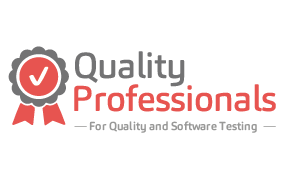Ensuring a flawless user experience is paramount for the success of any mobile application. With the proliferation of devices and operating systems, mobile app testing has become a strategic investment that directly influences app success. A comprehensive testing strategy that includes both automated and manual testing methods can help address the challenges of a diverse ecosystem, meet user expectations, and secure app store approval. This article explores key strategies to leverage automated mobile testing for app success, highlighting essential practices and modern technologies that can elevate the quality and performance of mobile applications. Key Takeaways Comprehensive mobile app testing is crucial for delivering a flawless user experience and ensuring the success of the application. Compatibility testing across a wide range of devices and operating systems is fundamental for achieving cross-device consistency. Modern technologies like AI, automation, and low-code/no-code test authoring can significantly enhance the efficiency of mobile testing. A balanced approach that includes both automated and manual testing can optimize the testing process and bring the best of both worlds. Best practices such as creating a detailed test plan, conducting cross-platform testing, and organizing test data are essential for overcoming mobile app testing challenges. Essential Strategies for Ensuring a Flawless User Experience Understanding the Importance of Comprehensive Testing Comprehensive testing is the cornerstone of a successful mobile application launch. As a business owner gearing up to launch your mobile application, comprehensive testing becomes a critical aspect of your development process. It's not just about finding bugs; it's about ensuring that every aspect of the app works as intended, providing a seamless and secure user experience. A thorough testing regimen covers various types of tests: Unit testing for individual components Integration testing for component interaction Functional testing for correct behavior UI testing for a user-friendly interface Performance testing for optimal speed Security testing to prevent unauthorized access Automated mobile testing plays a pivotal role in maintaining application integrity, swiftly identifying and resolving issues, and supporting agile development for faster delivery of high-quality products. Security and performance tests, such as penetration testing, load, and stress testing, are indispensable for assessing the app's robustness and reliability under extreme conditions. This multifaceted approach to testing ensures that the app not only meets technical standards but also delivers a user experience that can lead to increased customer satisfaction and success in the competitive app marketplace. Tailoring Testing Strategies to Business Needs To achieve quality results in mobile app testing, it's crucial to craft a robust test strategy that aligns with specific business requirements. This involves selecting target mobile devices and user demographics that reflect the app's intended market. Predictive analytics can play a significant role in optimizing test coverage by suggesting the most relevant test cases based on code changes and historical defect patterns. By tailoring testing strategies to business needs, organizations can prioritize testing activities, ensuring that all critical functionalities are comprehensively covered. A tailored approach allows for the alignment with specific regulatory standards, which is essential for apps in industries such as finance and healthcare. This ensures not only compliance but also a superior user experience, driving customer satisfaction and trust. Below is a list of testing types that should be considered in a comprehensive strategic testing methodology: Usability Testing Security Testing Performance Testing Load Testing Regression Testing User Acceptance Testing Each testing type addresses different aspects of the app's functionality and user experience, contributing to a holistic testing strategy. Investing in Testing as a Strategic Success Factor Investing in testing is not merely a phase in the development process; it is a strategic factor that can determine the success of a mobile application. Automation testing in mobile app development is a critical component that allows for the execution of predefined test cases with efficiency and precision. By incorporating automated scripts and tools, businesses can reap significant strategic benefits: Faster Development Cycles: Automated regression and build-over-build testing accelerate the journey from development to market. Enhanced Productivity: Automation frees developers and QA teams to concentrate on more complex and creative tasks. Improved App Quality: Continuous testing ensures that apps adhere to the highest standards of performance and user experience. Embracing a strategic approach to testing, including risk-based and API testing, is essential for apps, especially in sectors like FinTech, where reliability and security are paramount. This investment not only safeguards compliance and user satisfaction but also fosters trust and customer loyalty. Compatibility Testing: The Key to Cross-Device Consistency Ensuring Broad Device and OS Coverage Achieving broad device and OS coverage is a cornerstone of mobile app testing. Ensuring that your application functions seamlessly on various devices is critical to prevent compatibility issues that may arise from different hardware configurations and OS updates. This includes not only the latest models but also older versions that are still in use by a significant portion of the market. Device fragmentation: A vast array of devices on the market poses a significant challenge. Operating system: Apps must run smoothly across different OS versions and updates. Network conditions: Testing must account for various network scenarios, including 2G, 3G, 4G, and Wi-Fi. By meticulously testing across a spectrum of screen sizes and resolutions, developers can ensure that their app's user interface adapts and functions properly on any device. It's essential to test on a wide range of devices to accommodate the estimated 6.8 billion global smart phone users. Retailers, in particular, must consider how their mobile applications will perform across different devices, operating systems, and browsers to integrate changes seamlessly. Addressing the Challenges of a Diverse Ecosystem The mobile app landscape is characterized by a vast array of devices and operating systems, each with its own set of specifications and user expectations. Ensuring a consistent user experience across this diversity is a formidable task for app developers and testers. Device fragmentation: The sheer number of devices in the market makes it challenging to guarantee app functionality and compatibility. Operating system variations: Apps must operate smoothly across different OS versions and updates. Network conditions: Testing must account for various network scenarios, including 2G, 3G, 4G, and Wi-Fi, to ensure reliability. The key to overcoming these challenges lies in a flexible testing strategy that is tailored to the unique strengths and weaknesses of each platform. Cost is another critical factor to consider. The need for diverse hardware, software, and specialized teams can lead to significant expenses. However, with the right tools and approaches, these challenges can be managed effectively to deliver a high-quality user experience. Securing App Store Approval with Rigorous Testing Achieving app store approval is a critical step in the mobile app development process. Rigorous testing plays a pivotal role in this, as it ensures that the app meets the high-quality standards set by app stores. Testing is not just a gatekeeper for app store entry, but a guarantor of user satisfaction and security. To ensure that your app stands up to the scrutiny of app store review processes, it's essential to cover various testing dimensions: Security Testing: Identify vulnerabilities and reinforce the app's defenses against cyber threats. Performance Testing: Evaluate the app's behavior under peak loads and stress conditions to ensure smooth operation. Compatibility Testing: Guarantee that the app functions across different devices and operating systems. By investing in comprehensive testing, developers not only pave the way for app store approval but also lay the foundation for a trustworthy and robust user experience. Remember, a well-tested app is more likely to receive a favorable reception from both app stores and users, leading to better reviews, higher ratings, and ultimately, a successful app that stands the test of time. Enhancing Mobile Testing with Modern Technologies Implementing Low-Code and No-Code Test Authoring The adoption of low-code and no-code test authoring platforms is revolutionizing the way mobile apps are tested. These platforms enable rapid test creation, offering high reusability and significantly reducing the need for maintenance. This is particularly beneficial for industries like retail, where the ability to swiftly adapt to market shifts and consumer trends is crucial. Teams with diverse skill levels can now contribute to the testing process, thanks to the user-friendly nature of these solutions. They allow for easy modifications and updates to apps without requiring extensive coding knowledge, thus democratizing the testing process and accelerating delivery times. By embracing low-code and no-code solutions, organizations can ensure comprehensive testing across a multitude of devices, harnessing the power of AI and automation to innovate and deliver high-quality mobile apps more quickly. The strategic implementation of these platforms not only streamlines the development cycle but also enhances collaboration between developers and stakeholders. It simplifies communication and aligns objectives, leading to more efficient and effective app creation and testing strategies. Leveraging AI and Automation for Efficient Testing In the realm of mobile app testing, AI and automation are game-changers, streamlining the process and enhancing efficiency. AI's predictive analytics can forecast performance and load requirements, guiding testers to focus on critical areas. This strategic approach not only saves time but also ensures a thorough examination of the app's robustness. AI can prioritize testing efforts by analyzing change frequency, feature importance, and historical issues. Automation acts as a relentless ally, tirelessly executing tests and expanding coverage. Integrating AI and automation into CI/CD pipelines accelerates release cycles, crucial for staying competitive. Embracing AI and automation in testing allows for rapid identification of bugs and performance issues, leading to faster time-to-market and a superior user experience. By leveraging these technologies, teams can keep a pulse on key performance indicators and data, ensuring that apps meet and exceed customer expectations. The synergy between AI and automated testing not only optimizes the testing process but also contributes to the creation of apps that resonate with users, offering a seamless shopping experience. Balancing Automated and Manual Testing for Optimal Results Determining the Right Mix of Testing Methods Finding the optimal balance between automated and manual testing is crucial for efficient and effective quality assurance. Automated testing excels in handling repetitive and regression tasks, ensuring that each iteration of the app maintains quality without exhaustive manual effort. On the other hand, manual testing brings the irreplaceable value of human insight, particularly for exploratory testing and user experience nuances. Automated Testing: Ideal for regression, load, and performance testing. Manual Testing: Best for usability, exploratory, and ad-hoc testing scenarios. The key is to align testing methods with the specific stages of app development and the unique characteristics of the app itself. This strategic alignment ensures that the strengths of both automated and manual testing are leveraged to their fullest. While automated testing can rapidly cover ground, manual testing is indispensable for capturing the subtleties of user interaction. It's not just about choosing one over the other; it's about integrating both to cover all facets of the app's functionality and user experience. Automated mobile testing for Repetitive and Regression Tasks Automated testing shines when it comes to handling repetitive tasks and regression testing. By automating these processes, teams can ensure that applications behave as expected after each change, without the need to manually retest every functionality. This not only enhances development efficiency but also maintains the integrity of the application through each iteration. Automation is not just about speed it's about consistency and reliability. Automated tests run the same way every time, eliminating the variability that comes with manual testing. Here's how automated testing benefits regression tasks: Swift identification and resolution of issues Maintenance of existing functionality integrity Prevention of unintended side effects from new changes Reduction in time to market Embracing automation allows developers to focus on creating new features and improving the app, rather than getting bogged down with monotonous testing procedures. The Value of Human Insight in Manual Testing While automated testing excels in efficiency and consistency, manual testing brings the irreplaceable value of human insight. Testers' intuitive understanding of user behavior and expectations is crucial for identifying nuanced issues that automated scripts may overlook. Manual testing allows for the exploration of complex user flows and the assessment of the app's aesthetic and functional appeal from a human perspective. Testers can simulate real user scenarios, such as signing up for a new account, to ensure intuitive interactions. Visual inspections help identify UI issues that might not be caught by automated tests. Human testers can provide feedback on the app's integration with other systems and platforms. Embracing both automated and manual testing strategies ensures a comprehensive testing process that leverages the strengths of each method. The collaboration between automated tools and human testers leads to a more robust and user-friendly application. Conclusion In the fast-paced world of mobile applications, success hinges on delivering an exceptional user experience. Automated mobile testing emerges as a pivotal strategy, offering a pathway to ensure that apps meet the high standards of today's tech-savvy consumers. By embracing key strategies such as compatibility testing, low-code and no-code test authoring, and the integration of AI and automation, development teams can address the myriad challenges of mobile app testing. These practices not only streamline the testing process but also enhance the overall quality and reliability of mobile apps. As we've explored throughout this article, a robust mobile testing strategy is not just a phase in development; it is a strategic investment that can significantly influence the success of your app. By prioritizing thorough testing and leveraging the latest in testing technologies, businesses can secure app store approval, meet user expectations, and ultimately pave the way for a successful mobile presence. [qodef_button size="medium" type="" text="Request a Service" custom_class="" icon_pack="font_awesome" fa_icon="" link="https://q-pros.com/online-test-request/" target="_self" color="" hover_color="" background_color="" hover_background_color="" border_color="" hover_border_color="" font_size="18" font_weight="" margin=""]...
Read MoreAuthor: q-pros
Software testing is an essential part of the software development process. It helps identify bugs, errors, and other issues that could affect the functionality and user experience of a software product. However, many companies rely solely on in-house testing, which can lead to biased results and missed defects. This is where independent testing comes in. In this article, we will explore the concept of independent software testing and how it can improve software quality. What is Independent Software Testing? Independent software testing is the process of testing a software product by a third-party team that is not involved in its development. This team is not influenced by the developers or stakeholders and can provide unbiased feedback on the quality of the software. Why is Independent Software Testing Important? Independent software testing is crucial for ensuring the quality of a software product. Here are some reasons why: Unbiased Results: Independent testers are not influenced by the developers or stakeholders, which means they can provide unbiased feedback on the quality of the software. This helps identify any issues or defects that may have been overlooked by the in-house testing team. Fresh Perspective: Independent testers bring a fresh perspective to the testing process. They can approach the software from a user's point of view and identify any usability issues that may have been missed by the development team. Expertise: independent software testing teams are often specialized in software testing and have a wealth of experience in identifying and resolving issues. This expertise can help improve the overall quality of the software. Cost-Effective: While hiring an independent software testing team may seem like an additional cost, it can actually save money in the long run. By identifying and resolving issues early on, companies can avoid costly fixes and potential loss of revenue due to poor quality software. How Does Independent Software Testing Improve Software Quality? Now that we understand the importance of independent software testing, let's explore how it can improve software quality. Identifying Hidden Defects In-house testing teams may overlook certain defects due to their familiarity with the software. Independent testers, on the other hand, approach the software with a fresh perspective and can identify hidden defects that may have been missed. This helps improve the overall quality of the software and ensures a better user experience. Uncovering Usability Issues Usability is a crucial aspect of software quality. Independent testers can provide valuable feedback on the user experience of the software. They can identify any usability issues that may have been overlooked by the development team and suggest improvements to enhance the user experience. Ensuring Compatibility With the ever-evolving technology landscape, it is essential to ensure that software is compatible with different devices, operating systems, and browsers. Independent testers can test the software on a variety of platforms and devices to ensure compatibility and provide feedback on any issues that may arise. Improving Performance Performance is a critical factor in software quality. Independent testers can perform load and stress testing to identify any performance issues and suggest improvements. This helps ensure that the software can handle a high volume of users and maintain its functionality under stress. Enhancing Security Security is a top concern for software products, especially those that handle sensitive data. Independent testers can perform security testing to identify any vulnerability and suggest measures to enhance the security of the software. This helps protect the software from potential cyber threats and ensures the safety of user data. Types of Independent Testing There are various types of independent software testing that can be performed to improve software quality. Some of the most common types include: Functional Testing Functional testing is the process of testing the functionality of a software product. It ensures that the software meets the specified requirements and performs as expected. Regression Testing Regression testing is the process of testing a software product after making changes or updates to ensure that the existing functionality is not affected. Performance Testing Performance testing is the process of testing the performance of a software product under different conditions, such as high user load or stress. Security Testing Security testing is the process of testing the security of a software product to identify any vulnerability and ensure the safety of user data. How to Implement Independent Testing in Software Development Implementing independent testing in the software development process can be a straightforward process. Here are some steps to follow: Identify the Need: The first step is to identify the need for independent testing. This could be due to a lack of resources or expertise in the in-house testing team, or the need for unbiased results. Choose a Reliable Testing Partner: Once the need is identified, the next step is to choose a reliable independent testing partner. Look for a company with a proven track record in software testing and expertise in the type of testing you require. Define the Scope: Clearly define the scope of the testing process, including the types of testing to be performed, the timeline, and the deliverables. Collaborate with the Testing Team: Collaboration is crucial for the success of independent software testing. Work closely with the testing team to provide them with the necessary resources and information to perform their tasks effectively. Review and Implement Feedback: Once the testing is complete, review the results and implement any necessary changes or fixes suggested by the testing team. Real-World Examples of Independent Software Testing Many companies have successfully implemented independent software testing in their software development process. Here are two examples: Netflix Netflix, the popular streaming service, relies on independent software testing to ensure the quality of its platform. They have a dedicated team of testers who perform various types of testing, including functional, performance, and security testing, to ensure a seamless user experience. Google Google, the tech giant, also relies on independent software testing to ensure the quality of its products. They have a dedicated team of testers who perform various types of testing, including usability, compatibility, and security testing, to ensure their products meet the highest standards of quality. Conclusion Independent software testing is a crucial aspect of software development that can significantly improve the quality of a software product. By providing unbiased results, a fresh perspective, and expertise, independent testing can help identify and resolve issues that may have been overlooked by the in-house testing team. By implementing independent testing in the software development process, companies can ensure a high-quality product that meets the needs and expectations of their users. [qodef_button size="" type="" text="Request a Service" custom_class="" icon_pack="font_elegant" fe_icon="" link="https://q-pros.com/online-test-request/" target="_self" color="" hover_color="" background_color="" hover_background_color="" border_color="" hover_border_color="" font_size="18" font_weight="" margin=""]...
Read MoreUnderstanding End-to-end testing in Riyadh What is End-to-End Testing? End-to-end testing is a comprehensive testing approach that evaluates the functionality and performance of an entire software application from start to finish. Unlike other testing methods that focus on individual components or modules, end-to-end testing simulates real-world user scenarios to identify and rectify any issues that may arise throughout the entire software workflow. The Role of End-to-End Testing in Software Testing End-to-end testing plays a pivotal role in the Software Testing lifecycle by ensuring that all interconnected components function harmoniously together. By validating the interaction between various modules, APIs, databases, and interfaces, end-to-end testing helps uncover potential bottlenecks, integration issues, and bugs before they impact the end-user experience. Key Components of End-to-end testing in Riyadh End-to-end testing encompasses a multitude of components, including functional testing, usability testing, performance testing, security testing, and scalability testing. By addressing each aspect comprehensively, organizations can gain a holistic view of their software's capabilities and limitations. Challenges and Benefits of End-to-end testing in Riyadh Challenges Faced in End-to-End Testing Cultural and Linguistic Considerations In Riyadh's diverse workforce, cultural and linguistic differences may pose challenges in communication and collaboration during the testing process. Addressing these considerations requires fostering a supportive and inclusive testing environment where all team members feel valued and empowered to contribute effectively. Regulatory Compliance Navigating the regulatory landscape in Riyadh demands meticulous attention to compliance requirements and industry standards. End-to-end testing helps ensure that software applications adhere to legal and regulatory guidelines, mitigating the risk of penalties and legal repercussions. Infrastructure Limitations Riyadh's software industry may encounter infrastructure limitations, such as network constraints, hardware compatibility issues, and resource constraints. Overcoming these challenges requires strategic planning, investment in robust infrastructure, and leveraging cloud-based solutions for scalable testing environments. Benefits of End-to-End Testing for Riyadh-Based Companies Improved Software Quality By rigorously testing the entire software ecosystem, Riyadh-based companies can enhance the quality and reliability of their applications, fostering customer trust and loyalty. Cost Reduction Proactively identifying and addressing issues through end-to-end testing helps mitigate the risk of costly software defects and downtime, ultimately reducing maintenance costs and enhancing overall profitability. Enhanced User Experience Prioritizing end-to-end testing enables Riyadh-based companies to deliver seamless and intuitive user experiences, driving customer satisfaction and retention. Best Practices for Effective End-to-End Testing Establishing Clear Testing Objectives Define clear testing objectives and success criteria to guide the end-to-end testing process and ensure alignment with business goals and user expectations. Selecting the Right Tools and Technologies Choose suitable testing tools and technologies that align with the organization's requirements, scalability, and budget constraints, empowering teams to streamline testing efforts effectively. Building Comprehensive Test Scenarios Develop comprehensive test scenarios that encompass a wide range of user interactions, edge cases, and system behaviors to uncover potential vulnerabilities and performance bottlenecks. Implementing Automation Where Possible Embrace automation tools and frameworks to expedite testing cycles, improve test coverage, and enhance overall efficiency without compromising accuracy. Collaborating Across Teams for Seamless Integration Foster cross-functional collaboration between development, QA, and operations teams to ensure seamless integration, continuous testing, and rapid feedback loops throughout the software development lifecycle. Implementing End-to-end testing in Riyadh: Case Studies Case Study 1: XYZ Company's Journey to Successful End-to-End Testing Explore how XYZ Company leveraged end-to-end testing to overcome challenges, improve software quality, and deliver superior user experiences in Riyadh's competitive market. Case Study 2: Challenges and Triumphs of End-to-End Testing at ABC Corporation Gain insights from ABC Corporation's experience in navigating the complexities of end-to-end testing, addressing key challenges, and achieving tangible business outcomes in Riyadh's dynamic software landscape. Lessons Learned and Insights Gained Reflect on the lessons learned and insights gained from implementing end-to-end testing strategies in Riyadh, highlighting best practices, pitfalls to avoid, and recommendations for future initiatives. Future Trends and Innovations in End-to-end testing in Riyadh Emerging Technologies Shaping the Future of Testing Explore emerging technologies such as artificial intelligence, machine learning, and robotic process automation that are revolutionizing end-to-end testing practices and paving the way for future innovations in Riyadh's software industry. Predictions for the Evolution of End-to-End Testing Practices Anticipate how end-to-end testing practices will evolve in response to technological advancements, market trends, and evolving customer demands, shaping the future landscape of Riyadh's software industry. Adapting to Technological Advancements in Riyadh's Software Landscape Stay ahead of the curve by proactively adapting to technological advancements, embracing agile methodologies, and fostering a culture of continuous learning and innovation in Riyadh's dynamic software landscape. Conclusion In conclusion, End-to-end testing in Riyadh stands as a fundamental pillar for guaranteeing the smooth performance, dependability, and scalability of software applications within Riyadh's fiercely competitive market. By comprehending the significance, obstacles, advantages, optimal approaches, case studies, and forthcoming trends of end-to-end testing, businesses like Quality Professionals in Riyadh can strategically position themselves for success. This approach enables them to elevate the importance of seamless software performance, thus thriving in the contemporary digital landscape. FAQ What is end-to-end testing? End-to-end testing is a comprehensive approach that evaluates the entire software application, including all interconnected components and functionalities, to ensure seamless performance and reliability. What is the importance of End-to-end testing in Riyadh within the city's software industry? End-to-end testing is crucial in Riyadh's software industry to mitigate risks, enhance software quality, and deliver superior user experiences amidst a competitive market landscape. What are the key components of End-to-end testing in Riyadh? The key components of End-to-end testing in Riyadh include functional, usability, performance, security, and scalability testing. What are some challenges faced in End-to-end testing in Riyadh? Challenges in end-to-end testing in Riyadh may include cultural and linguistic considerations, regulatory compliance, and infrastructure limitations such as network constraints and resource limitations. How can end-to-end testing benefit Riyadh-based companies? End-to-end testing can benefit Riyadh-based companies by improving software quality, reducing costs, and enhancing user experience, ultimately leading to increased customer satisfaction and loyalty. What are the best practices for effective end-to-end testing? Best practices for effective end-to-end testing include establishing clear testing objectives, selecting the right tools and technologies, building comprehensive test scenarios, implementing automation where possible, and fostering collaboration across teams. Can you provide examples of successful end-to-end testing implementations in Riyadh? Yes, case studies such as XYZ Company's journey to successful end-to-end testing and the challenges and triumphs of end-to-end testing at ABC Corporation offer insights into real-world implementations in Riyadh's software industry. What are the future trends and innovations in end-to-end testing? Future trends and innovations in end-to-end testing include emerging technologies such as artificial intelligence, machine learning, and robotic process automation, which are shaping the future landscape of Riyadh's software industry. [qodef_button size="medium" type="" text="Request a Service" custom_class="" icon_pack="font_awesome" fa_icon="" link="https://q-pros.com/online-test-request/" target="_self" color="" hover_color="" background_color="" hover_background_color="" border_color="" hover_border_color="" font_size="" font_weight="" margin=""]...
Read MoreImportance of Using Reliable functional testing tools in Riyadh When it comes to Functional Testing Tools in Riyadh, the capital city of Saudi Arabia and a burgeoning hub of technological innovation, the significance of employing dependable testing tools cannot be emphasized enough. These tools are instrumental in elevating the quality and dependability of software products crafted within the region. Understanding Functional Testing Definition of Functional Testing Functional testing refers to the process of verifying that each function of the software application operates in accordance with the requirements outlined in the design documentation. It focuses on the behavior of the software and ensures that it performs as expected in real-world scenarios. Key Objectives of Functional Testing The primary objectives of functional testing include validating the system's functionality, identifying defects or discrepancies in the application, ensuring compliance with business requirements, and enhancing the overall user experience. Importance of Functional Testing in Software Functional testing plays a critical role in the software development lifecycle by detecting defects early in the process, thereby reducing the cost of fixing issues in later stages. It also helps in ensuring that the software meets customer expectations and regulatory standards, ultimately leading to increased customer satisfaction and loyalty. Criteria for Selecting Functional Testing Tools When selecting functional testing tools, it's essential to consider several key criteria to ensure they meet the specific needs of the project and provide optimal results. Essential Features to Look for in Functional Testing Tools . Robust test case management capabilities . Comprehensive reporting and analysis tools . Support for various testing methodologies (e.g., black-box testing, white-box testing) . Integration with popular development and project management tools Compatibility with Different Software Applications The chosen testing tool should be compatible with a wide range of software applications, including web-based, mobile, and desktop applications, to accommodate diverse testing requirements. Scalability and Flexibility of the Tool A scalable and flexible testing tool can adapt to the evolving needs of the project and accommodate changes in the software architecture without compromising its effectiveness. Integration with Other Testing Tools and Platforms Integration capabilities allow seamless collaboration between different testing tools and platforms, facilitating efficient test execution and reporting across the entire software development lifecycle. Top Functional Testing Tools in Riyadh Riyadh, as a burgeoning technological hub, demands the utilization of top-tier functional testing tools to ensure the quality and reliability of software products developed within the region. Quality Professionals recognizes the significance of employing cutting-edge tools that cater to the diverse needs of our clients in Riyadh. Here are some of the recommended functional testing tools: Selenium: Selenium is a widely-used open-source testing framework that offers robust capabilities for automating web application testing. Its flexibility and extensibility make it an ideal choice for testing web-based applications in Riyadh. HP Unified Functional Testing (UFT): Formerly known as HP QuickTest Professional (QTP), UFT is a comprehensive testing tool that supports automated functional and regression testing for a variety of software applications. Its intuitive interface and powerful scripting capabilities make it a preferred choice among testing professionals in Riyadh. TestComplete: TestComplete is a feature-rich testing tool that provides automated functional testing for web, desktop, and mobile applications. Its extensive support for scripting languages and built-in object recognition capabilities make it a versatile choice for testing diverse software products in Riyadh. Apache JMeter: Apache JMeter is an open-source testing tool primarily used for performance testing of web applications. However, it also offers functional testing capabilities, making it a valuable addition to the toolkit of QA professionals in Riyadh, especially for projects with a focus on performance and scalability. IBM Rational Functional Tester: IBM Rational Functional Tester is a robust testing tool designed for automated functional testing of various software applications, including web, mobile, and desktop applications. Its advanced scripting capabilities and integration with other IBM software tools make it well-suited for complex testing scenarios in Riyadh. These functional testing tools offer a range of features and functionalities tailored to meet the specific requirements of software testing projects in Riyadh. Quality Professionals recommends evaluating the unique needs of each project and selecting the most suitable tool to ensure efficient and effective testing processes, ultimately leading to the delivery of high-quality software solutions within the region. Choosing the Right Tool for Your Project When selecting a functional testing tools in Riyadh, it's crucial to evaluate your specific needs and conduct a thorough cost-benefit analysis to ensure optimal results. Seeking recommendations from industry experts or peers can also provide valuable insights into selecting the most suitable tool for your requirements. Best Practices for Effective functional testing tools in Riyadh Adhering to best practices is essential for achieving successful outcomes in functional testing projects. These practices include creating comprehensive test cases and scenarios, implementing test automation where applicable, regularly updating testing tools and frameworks, and fostering collaboration between QA teams and developers. Conclusion In conclusion, for Quality Professionals, the utilization of dependable functional testing tools is crucial in safeguarding the excellence and dependability of software products crafted in Riyadh. By carefully selecting suitable tools and adhering to industry best practices, our QA professionals can elevate their testing endeavors and play a pivotal role in ensuring the triumphant delivery of top-notch software solutions within the region. Encouraging a mindset of exploration and experimentation with diverse tools not only fortifies our quality assurance process but also fosters a culture of continuous improvement in software development practices, reinforcing our commitment to excellence in every project we undertake. FAQ about Functional Testing Tools in Riyadh What is the significance of Functional Testing Tools in Riyadh? Functional testing ensures that software products developed in Riyadh meet the required standards of functionality and reliability, which is crucial for delivering high-quality solutions to clients and users. What are the key features to look for in functional testing tools? Essential features include robust test case management, comprehensive reporting and analysis tools, support for various testing methodologies, and integration capabilities with other development and project management tools. How do functional testing tools contribute to software Service in Riyadh? Functional testing tools enable QA professionals in Riyadh to identify defects early in the development process, ensuring a smoother and more efficient software Service lifecycle. Functional testing ensures that software products developed in Riyadh meet the required standards of functionality and reliability, which is crucial for delivering high-quality solutions to clients and users. Essential features include robust test case management, comprehensive reporting and analysis tools, support for various testing methodologies, and integration capabilities with other development and project management tools. Functional testing tools enable QA professionals in Riyadh to identify defects early in the development process, ensuring a smoother and more efficient software Service lifecycle. What criteria should be considered when selecting functional testing tools in Riyadh? Criteria such as compatibility with different software applications, scalability and flexibility of the tool, and integration with other testing tools and platforms are essential for selecting the right functional testing tool in Riyadh. Which functional testing tools are recommended for projects in Riyadh? Recommended tools include Selenium, HP Unified Functional Testing (UFT), TestComplete, Apache JMeter, and IBM Rational Functional Tester, each offering unique features and functionalities suited to the diverse needs of projects in Riyadh. What are the benefits of using functional testing tools in Riyadh? Benefits include improved software quality and reliability, reduced time-to-market, enhanced customer satisfaction, and increased efficiency in the software development process. Criteria such as compatibility with different software applications, scalability and flexibility of the tool, and integration with other testing tools and platforms are essential for selecting the right functional testing tool in Riyadh. Recommended tools include Selenium, HP Unified Functional Testing (UFT), TestComplete, Apache JMeter, and IBM Rational Functional Tester, each offering unique features and functionalities suited to the diverse needs of projects in Riyadh. Benefits include improved software quality and reliability, reduced time-to-market, enhanced customer satisfaction, and increased efficiency in the software development process. https://q-pros.com/online-test-request/...
Read MoreWelcome to Premier Quality Assurance Engineers in RiyadhIn Riyadh, where innovation and excellence converge, quality assurance engineering services play a pivotal role in ensuring the success and sustainability of businesses across diverse industries. As the heartbeat of the Saudi Arabian economy, Riyadh demands nothing short of exceptional quality in products and services. In this article, we delve into the significance of quality assurance, the multifaceted role of quality assurance engineers, the benefits they bring to Riyadh businesses, key responsibilities they shoulder, the tools and technologies they wield, best practices tailored to Riyadh's unique landscape, and how to select the right quality assurance partner to navigate the competitive market with confidence.Why Quality Assurance is Essential for Businesses in RiyadhQuality assurance stands as the cornerstone of business operations in Riyadh, serving as a linchpin for success in a rapidly evolving marketplace. In an era defined by discerning consumers and fierce competition, businesses in Riyadh cannot afford to overlook the importance of quality assurance. Whether catering to local needs or competing on a global scale, maintaining high standards of quality is paramount for sustaining growth, fostering trust, and safeguarding brand reputation.Understanding the Role of Quality Assurance Engineers in RiyadhAt the heart of every successful quality assurance endeavor lies the expertise of quality assurance engineers. These skilled professionals are tasked with ensuring that products and services meet predefined standards of quality, functionality, and performance. Their role encompasses a spectrum of responsibilities, ranging from conducting meticulous testing and analysis to collaborating closely with development teams to deliver seamless solutions.What Does a Quality Assurance Engineer Do?Quality assurance engineers are the guardians of product excellence, meticulously scrutinizing every aspect of the development process to identify and address potential defects and issues. Their meticulous attention to detail and unwavering commitment to quality serve as the bedrock upon which Riyadh businesses build their success.Defining Quality Assurance Engineers in RiyadhIn the dynamic landscape of Riyadh's business ecosystem, quality assurance takes on added significance, serving as a linchpin for success in an increasingly competitive market. Beyond mere compliance with standards and regulations, quality assurance in Riyadh is about exceeding customer expectations, driving innovation, and setting new benchmarks for excellence.Importance of QA Engineers in Ensuring Product ExcellenceQuality assurance engineers play a pivotal role in upholding the reputation and integrity of Riyadh businesses by ensuring that products and services consistently meet or exceed customer expectations. Through their rigorous testing methodologies and unwavering commitment to quality, they contribute to the overall success and sustainability of Riyadh's vibrant business landscape.The Benefits of Quality Assurance Engineering ServicesIn a marketplace where reputation is everything, investing in quality assurance engineering services offers a myriad of benefits for Riyadh businesses, including:Ensuring Product Reliability and ConsistencyMitigating Risks and Reducing CostsEnhancing Customer Satisfaction and LoyaltyBuilding Trust in a Competitive MarketKey Responsibilities of Quality Assurance EngineersQuality assurance engineers are entrusted with a range of critical responsibilities, including:Conducting Thorough Testing and AnalysisImplementing Test Plans and StrategiesIdentifying and Addressing DefectsCollaborating with Development TeamsTools and Technologies Utilized by Quality Assurance EngineersFrom state-of-the-art testing tools to cutting-edge automation technologies, quality assurance engineers leverage a diverse array of tools and technologies to streamline testing processes, enhance efficiency, and ensure the highest levels of accuracy and reliability in Riyadh's dynamic business environment.Best Practices for Quality Assurance Engineers in RiyadhEstablishing robust QA processes and standards, customizing approaches to suit Riyadh's diverse industries, embracing continuous improvement, and staying abreast of market trends and regulatory changes are among the best practices that Riyadh businesses can adopt to elevate their quality assurance efforts.Choosing the Right Quality Assurance Engineers in RiyadhSelecting the right quality assurance partner is essential for Riyadh businesses seeking to navigate the complexities of the market with confidence. By evaluating experience, expertise, communication, collaboration capabilities, and integration with development teams, businesses can ensure seamless execution and unparalleled results. In conclusion, quality assurance stands as a cornerstone of success in Riyadh's dynamic business landscape, driving innovation, fostering trust, and setting new standards for excellence. By partnering with experienced quality assurance professionals, Riyadh businesses can elevate their operations, exceed customer expectations, and thrive in an ever-changing marketplace. Partner with us for unparalleled quality assurance solutions and embark on a journey towards sustained success and prosperity in Riyadh and beyond. (FAQ) about Quality Assurance Engineering Services in Riyadh What is the significance of quality assurance in Riyadh's business landscape? Quality assurance plays a pivotal role in Riyadh’s business ecosystem by ensuring that products and services meet stringent standards of quality, thus fostering trust, driving innovation, and enhancing competitiveness. What are the key responsibilities of quality assurance engineers in Riyadh? Quality assurance engineers in Riyadh are tasked with conducting thorough testing and analysis, implementing test plans, identifying and addressing defects, and collaborating closely with development teams to deliver seamless solutions. How do quality assurance engineering services benefit businesses in Riyadh? Quality assurance engineering services offer numerous benefits for Riyadh businesses, including ensuring product reliability and consistency, mitigating risks, reducing costs, enhancing customer satisfaction, and building trust in a competitive market. Quality assurance plays a pivotal role in Riyadh's business ecosystem by ensuring that products and services meet stringent standards of quality, thus fostering trust, driving innovation, and enhancing competitiveness.Quality assurance engineers in Riyadh are tasked with conducting thorough testing and analysis, implementing test plans, identifying and addressing defects, and collaborating closely with development teams to deliver seamless solutions.Quality assurance engineering services offer numerous benefits for Riyadh businesses, including ensuring product reliability and consistency, mitigating risks, reducing costs, enhancing customer satisfaction, and building trust in a competitive market. What tools and technologies are utilized by quality assurance engineers in Riyadh? Quality assurance engineers in Riyadh leverage a variety of tools and technologies, including testing software, automation tools, and cutting-edge technologies tailored to streamline testing processes, enhance efficiency, and ensure accuracy. What are some best practices for quality assurance in Riyadh? Establishing robust QA processes and standards, customizing approaches to suit Riyadh’s diverse industries, embracing continuous improvement, and staying ahead of market trends and regulatory changes are among the best practices recommended for quality assurance in Riyadh. How can businesses in Riyadh choose the right quality assurance partner? When selecting a quality assurance partner in Riyadh, businesses should evaluate factors such as experience, expertise, communication, collaboration capabilities, and integration with development teams to ensure seamless execution and optimal results. Quality assurance engineers in Riyadh leverage a variety of tools and technologies, including testing software, automation tools, and cutting-edge technologies tailored to streamline testing processes, enhance efficiency, and ensure accuracy.Establishing robust QA processes and standards, customizing approaches to suit Riyadh's diverse industries, embracing continuous improvement, and staying ahead of market trends and regulatory changes are among the best practices recommended for quality assurance in Riyadh.When selecting a quality assurance partner in Riyadh, businesses should evaluate factors such as experience, expertise, communication, collaboration capabilities, and integration with development teams to ensure seamless execution and optimal results. ...
Read More





